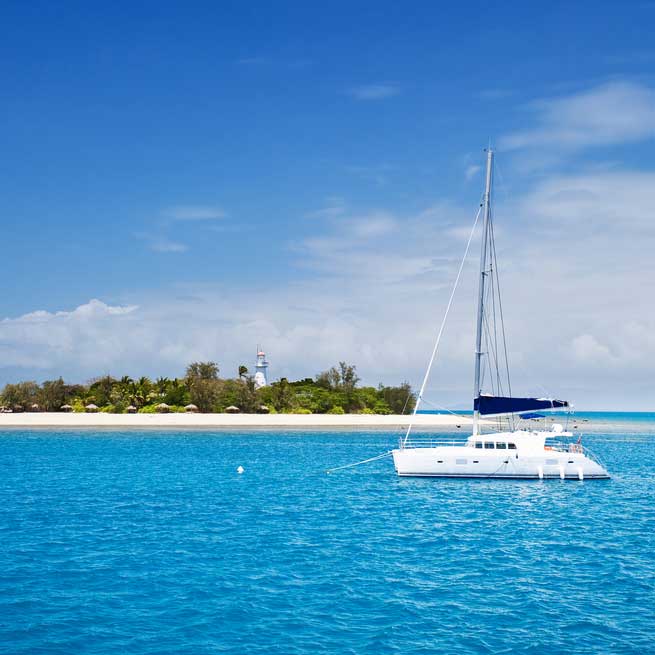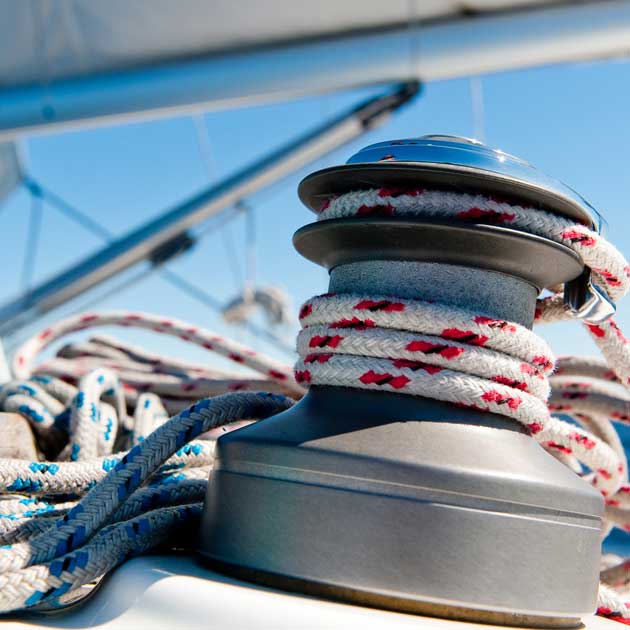Yachts Arriving & Leaving Australia
Customs clearance of your yacht
Navigating the intricate waters regarding yachts and other vessels regarding the Australian Border Force [ABF] and the Department of Agriculture, Fisheries and Forestry procedures is not for the fainthearted. Some mariners rely upon a customs broker for the Export Declaration Number [EDN] for when they are departing Australia, some mariners rely upon a customs broker for the Formal Import Declaration [FID] for when they return and then some mariners rely upon a customs broker for both processes.

We provide a Seamless Customs Process
The export and import processes are paperwork heavy and two Government departments are involved in the process. The process can be a challenge and at the same time it can also be daunting, but as Platinum® processes yachts departing and arriving regularly, we have the customs formality process finessed.
If we are to talk about vessels departing Australia, not only does the vessel need to be cleared for export but so does the accompanying passengers. If we are to talk about vessels arriving for the first time, the ABF will be concerned with import tax liabilities. If we are talking about vessels returning after a short time away from Australia, the ABF must be appeased that the vessel is a returning vessel.
In the last calendar year, Platinum® has regularly processed vessels and accompanying passengers departing from or arriving in Mackay, Darwin, Brisbane and Cairns. Platinum® can process vessels at any Australian port.
In this niche customs clearance field, one name stands out as a beacon of reliability and expertise – Platinum®; your marine exporting and importing customs brokerage. With a reputation built on over twenty-three years of experience and a deep understanding of the marine industry, Platinum® has carved out a unique space for itself. Our commitment to providing a premium service and an unyielding dedication to our clients ensures that we make the customs formality processes as seamless and stress-free as possible.
We understand that each departure or entry is a journey coupled with your passion to visit various ports and locations; we aim to keep the administrative hurdles from dampening your experience.
Ports of Entry details the locations within each state and the requirements.
TALK TO AN AUSTRALIAN CUSTOMS CLEARANCE EXPERT TODAY
The Benefits of Relying upon Platinum® Yacht Services
What sets Platinum® Yacht Services apart in a sea of competitors? It’s our unwavering commitment to excellence and our availability to work within short time frames.
Streamlined Yacht Export & Import Clearance
Firstly, we provide a streamlined yacht export and import clearance. Over the years, we have honed our processes, refining them to a point where we can confidently claim that your yacht will clear the border with minimal delays. We take care of all the details, so you don’t have to worry about any unexpected surprises.
Quick Clearance Processing Times
Secondly, we offer swift processing times. In the world of yachting, we understand that time is more than just a luxury; it’s a necessity, especially when attempting to depart or arrive in line with the weather conditions. Delays can mean missed opportunities, disrupted plans and increased costs. That’s why our dedicated team works tirelessly to expedite the clearance process, making sure your yacht is ready to arrive or depart as quickly as possible.
Premium Expert Service
Finally, there’s our unique One Touch™ policy. This comprehensive service means that once you entrust us with your yacht clearance, you will only liaise with one person from our company. Your customs clearance broker will handle everything from beginning to finish. We will coordinate with the two government authorities, process the paperwork and ensure all necessary fees are paid. This lets you focus on what truly matters – enjoying your sailing experience. With Platinum® at the helm, you can rest assured that your yacht clearance is in capable hands.
Demystifying the Yacht Customs Clearance Process
The yacht customs clearance process, an intricate labyrinth of legalities, regulations and paperwork, often daunts even experienced seafarers. However, once you break it down into its constituent steps, the process becomes less intimidating and more manageable.
Let’s delve into these five key stages and unravel the mystery surrounding yacht customs clearance.
Step 1: Documentation Acquisition
The first and most crucial step in the yacht customs clearance process is acquiring all of the necessary documents. This paperwork forms the foundation for the entire process, ensuring everything proceeds smoothly and legally. Typically, the documentation required includes the yacht’s registration papers, ownership documents, insurance certificates and crew lists. Additionally, specific information regarding the yacht’s make, model, year of manufacture and other relevant details are essential.
It is also pivotal to know where your next port of call will be or where you last departed from. For instance, if your yacht has visited regions that have strict quarantine measures, additional inspections may be necessary upon arrival into Australia.
Step 2: Yacht Declaration
Once we have gathered all the required paperwork, the next step is to officially declare your yacht to the ABF and to the DAFF. This declaration is an electronic communication made to the Australian Border Force (ABF), asserting that your yacht is entering or departing Australian waters. It’s a critical step, one that requires meticulous attention to detail so as to avoid any delays.
During this stage, you’ll need to provide comprehensive information about your yacht, including its value, origin, destination and purpose of the trip. As part of the declaration process, there will be other forms to complete such as accompanying passengers.
Step 3: Duty and or GST tax calculations
Upon successful submission of the yacht declaration, the ABF will calculate the import duty and or GST for the yacht. These costs can vary depending on the circumstances of the yacht coming to Australia.
Import duty for a yacht is 5% and the Goods and Services Tax (GST) is 10%.
Step 4: Australian Border Force Coordination
This step involves us liaising directly with the Australian Border Force (ABF). The ABF is responsible for enforcing Australia’s customs and border protection laws; coordinating with the ABF ensures that all procedures are correctly followed.
During this phase, the ABF may will require information of the departure or arrival. The DAFF will also be involved for yachts arriving into Australia; the DAFF will undertake a quarantine inspection onboard to ensure that there are nil biosecurity risks.
Step 5: Post-Clearance Assistance
Even after your yacht has been cleared by both the ABF and the DAFF, there may be tasks to complete and questions to answer. This is where post-clearance assistance comes in. This service provides support after the yacht has cleared customs, addressing any concerns or issues that have arisen and assisting you with any further documentation or requirements.
Post-clearance assistance ensures that you are not left to navigate these waters alone, Platinum® provides expert guidance every step of the way.
While the yacht customs clearance process may seem daunting at first glance, breaking it down into these five key steps makes it far more approachable. With careful preparation, attention to detail and the right support, you can navigate this process with confidence, ensuring that your journey and yacht can continue en route.
CONTACT AN AUSTRALIAN CUSTOMS CLEARANCE EXPERT TODAY
Platinum® Success Stories
Platinum® Yacht Services has a proven track record of success. Here are some recent achievements:
- Successfully cleared a yacht arriving into Mackay.
- Facilitated the clearance of a yacht departing from Darwin for Indonesia, not once but twice.
- Managed the clearance of a vessel departing from Darwin for New Zealand.
- Expertly handled the clearance of a vessel departing from Hobart for New Zealand.
Rely Upon Platinum®
In the world of yacht customs clearance, Platinum® Yacht Services stands as a beacon of excellence. Our expertise, commitment to service and unique offerings make us the ideal choice for your yacht clearance needs.
Don’t let the complexities of customs clearance dampen your yachting experience. Reach out to us today and sail through with ease.

Frequently Asked Questions
What do I need to do to export a yacht from Australia?
Whenever you plan to export your yacht from Australia, you must submit various papers to the Australian Border Force (ABF]; once of the paperwork requirements is to have an Export Declaration Number (EDN). Platinum® is generally able to process the EDN within say 1-2 hours on receipt of all of the paperwork. The ABF generally requires three (3) clear working days to process the crew and yacht departure.
What is required when I return my yacht to Australia?
Before you return your yacht to Australia, it is best to contact Platinum® at least 5 business days before your arrival so that we can process the return paperwork through both the Australian Border Force (ABF) and the Department of Agriculture, Fisheries and Forestry (DAFF).
How long will it take to clear my yacht once I arrive into Australia?
Platinum® always aims to pre-clear your crew and yacht before arriving in Australia. Once the yacht has arrived in Australia, the Department of Agriculture, Fisheries and Forestry will undertake a visual inspection of the yacht.
Can I sell my yacht while overseas?
If you export your yacht from Australia and then sell the yacht overseas and then the new owner imports that yacht to Australia, the new importer will be liable for 5% import duty and 10% import GST. The Australian Border Force (ABF) levies these fees as the owner who exported the yacht is not the same owner who returns the yacht to Australia. Platinum® regularly handles the customs clearance formalities for this type of scenario.
What are the taxes payable on a yacht arriving into Australia?
When importing yachts to Australia, the two taxes are generally 1) 5% import duty and 2) 10% import GST based on the purchase price.
